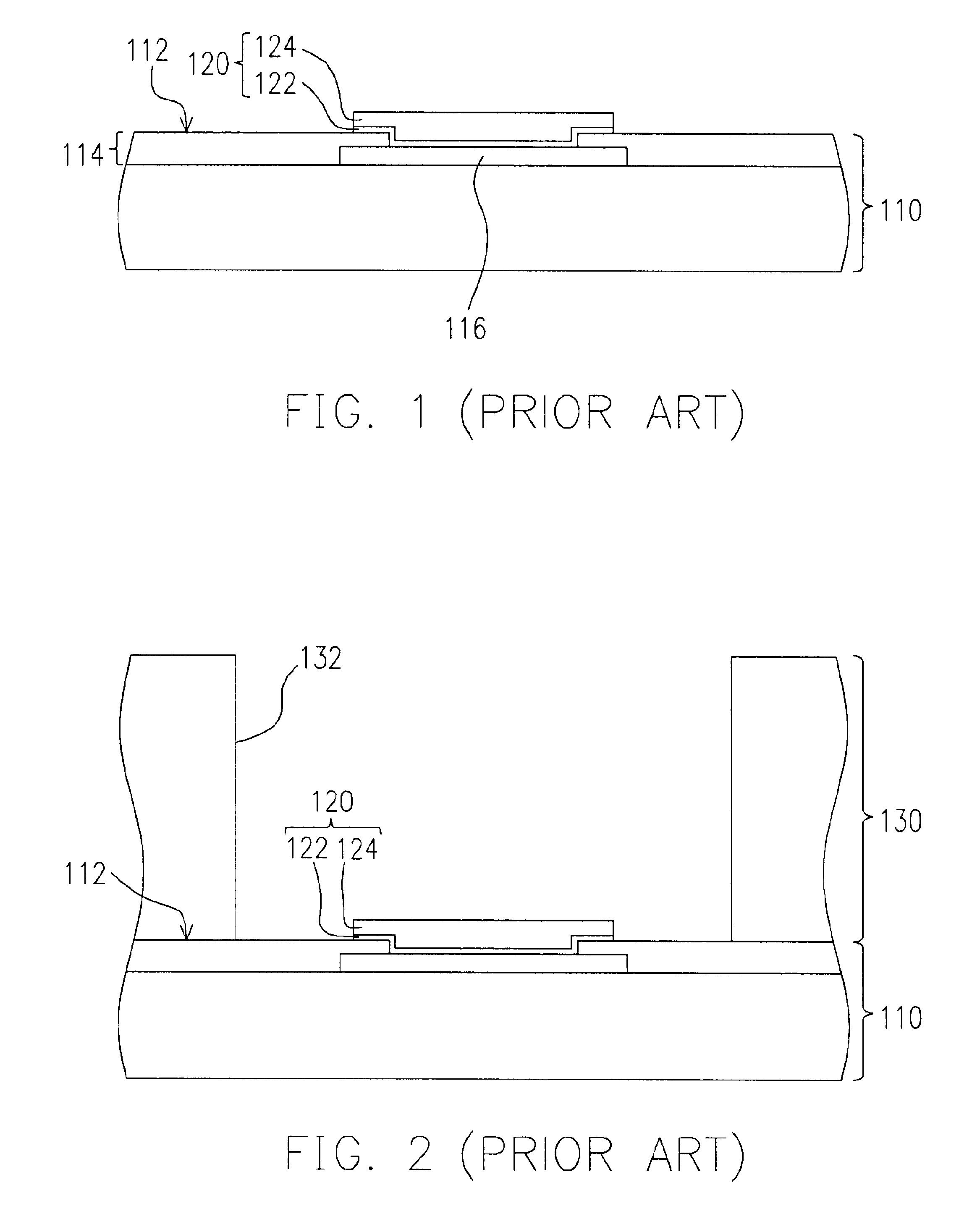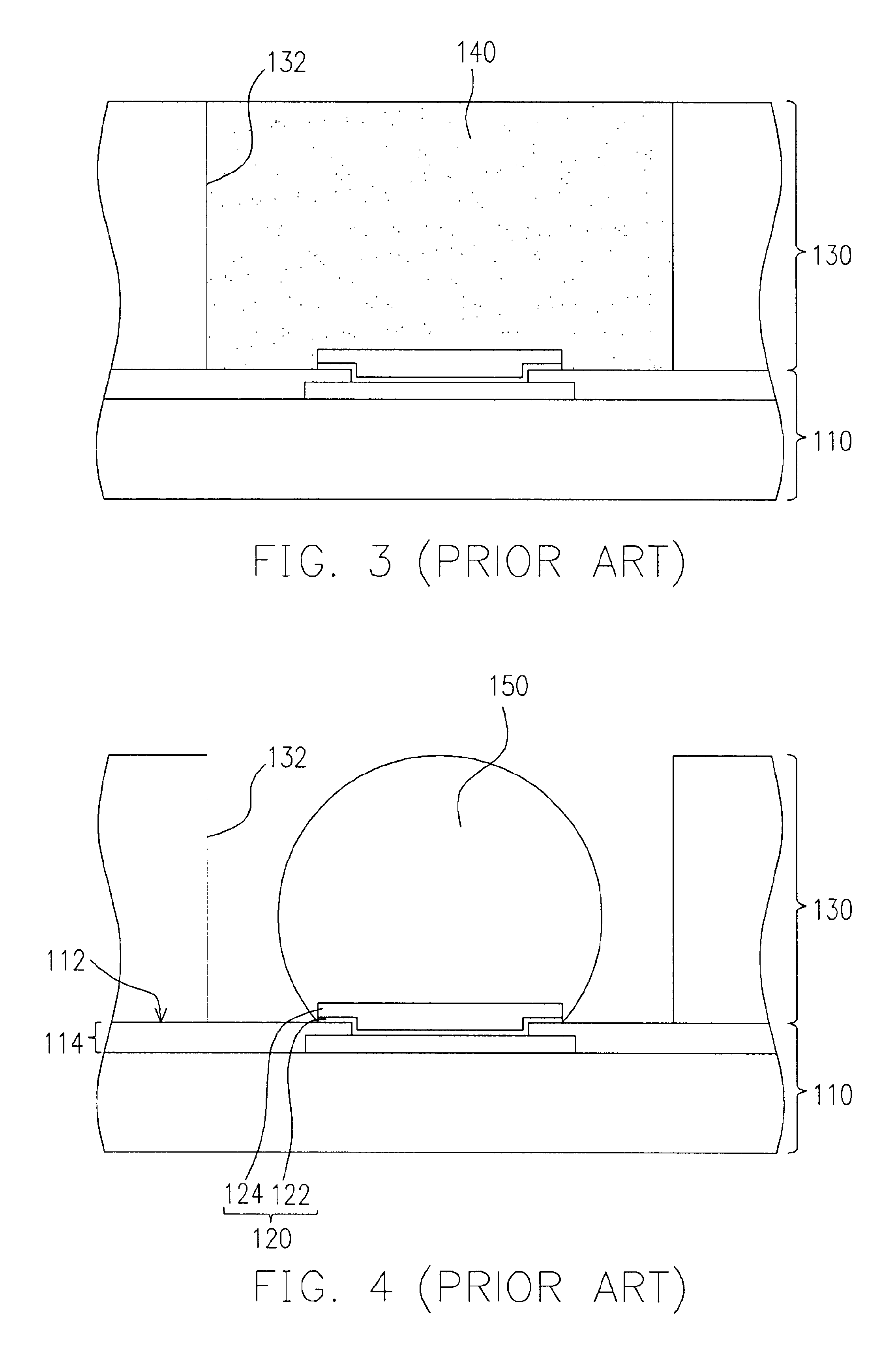Method of forming bumps
a technology of bumps and bumps, applied in the direction of semiconductor devices, semiconductor/solid-state device details, electrical equipment, etc., can solve the problems exposing the back of flip-chip dies to increase heat dissipation, etc., and achieve the effect of reducing the size variation between solder blocks
- Summary
- Abstract
- Description
- Claims
- Application Information
AI Technical Summary
Benefits of technology
Problems solved by technology
Method used
Image
Examples
Embodiment Construction
[0025]Reference will now be made in detail to the present preferred embodiments of the invention, examples of which are illustrated in the accompanying drawings. Wherever possible, the same reference numbers are used in the drawings and the description to refer to the same or like parts.
[0026]FIGS. 6 through 11 are partially magnified cross-sectional views showing the progression of steps for forming a bump on the surface of a chip according to one preferred embodiment of this invention. As shown in FIG. 6, a silicon wafer 210 having an active surface 212 thereon is provided. The active surface 212 of the wafer 210 further includes a passivation layer 214 and a plurality of contact pads 216 (only one is shown). The passivation layer 214 exposes the contact pads 216. The contact pads 216 are aluminum or copper pads, for example. A process for forming an under-ball metallic layer 220 over the contact pad 216 is conducted. First, an adhesion layer 222 is formed over the active layer 21...
PUM
 Login to View More
Login to View More Abstract
Description
Claims
Application Information
 Login to View More
Login to View More - R&D
- Intellectual Property
- Life Sciences
- Materials
- Tech Scout
- Unparalleled Data Quality
- Higher Quality Content
- 60% Fewer Hallucinations
Browse by: Latest US Patents, China's latest patents, Technical Efficacy Thesaurus, Application Domain, Technology Topic, Popular Technical Reports.
© 2025 PatSnap. All rights reserved.Legal|Privacy policy|Modern Slavery Act Transparency Statement|Sitemap|About US| Contact US: help@patsnap.com



